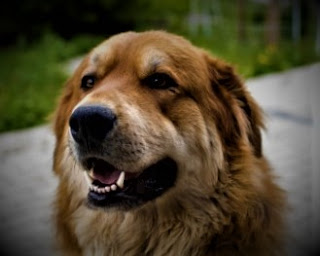Buryat Mongolian Wolfhound
history
Buryat-Mongolian wolfhound is a very ancient breed with a
rich history, for many centuries, deserved the respect of man. The exact origin
of the breed has not yet been established, however, archaeological excavations
carried out in the "Gunn settlement" on the outskirts of the city of
Ulan Ude have shown the following.
The remains of dogs found in this place are almost identical
in structure to modern wolfhounds. These ancient dogs are the oldest of all
breeds in this area, and the territory where the ancient wolfhounds lived,
covers Buryatia, part of Mongolia, part of Kazakhstan and Tuva, part of China, and Tibet.
They are considered aboriginals of these places.
Accordingly, Buryat-Mongolian wolfhounds are ancient similar dogs from Tibet (they
are called - Tibetans), although before the excavation many researchers
believed the opposite. nay. Even in the wilds of Siberia today you can find
this dog, and it appeared there clearly not in the last century, but in a much
earlier time.
In Buryatia they are also called Banhar, hotosho (or
hot-matter depends on pronunciation), Tibetan (Tibetan dog - although, strictly
speaking, these are two different breeds, which confirmed the above
excavations). From ancient times they were used as guards for home and
livestock, as well as for hunting. Often wolfhounds guarded Buddhist
monasteries. The Russian Cynological Federation recognized the breed in 2000.
Characteristics
of the breed
popularity 01/10
training 03/10
size 03/10
mind 07/10
protection 10/10
Relationships with
children 07/10
Dexterity 08/10
Breed
information
|
country |
Russia (Buryatia) |
|
lifetime |
12-14 years old |
|
height |
Males: 65-75 |
|
weight |
Males: 45-70 |
|
Longwool |
Average |
|
Color |
black with red-haired, red, black with white, wolfish |
description
These are large dogs with a muscular physique and voluminous
chests. The limbs are muscular, strong, and medium length. The neck is powerful. The
head is round, and the ears are hanging. The tail is medium length, and the wool is
medium length.
personality
Buryat-Mongolian wolfhound - fearless and very devoted to
his master, and in general his beloved people, his family, dog. For a very long
time of its existence, the breed has developed the most valuable qualities that
are so valued by people.
Of course, it is a high intellect, the ability to perfectly
understand a person and recognize behavioral problems, the ability to stand up
for the owner and his family no matter what. Buryat-Mongolian wolfhound will
immediately give his life for the owner, if necessary.
It is perfect for living in a private home, as a caretaker,
however, these are very freedom-loving animals that cannot be kept on a chain.
In addition, the dog should spend the night in the house with the owner, for
him it is important. At the very least, he should have free access to the
house, and be in constant contact with his family.
This is a very unpretentious breed in terms of care, not
capricious, and very hardy. He's not afraid of cold. He treats children
beautifully, likes to spend time with them, and also has great patience when it
comes to the child. However, it is necessary to remember that a child from his
family, and someone else's child - it is different things for the dog.
The breed has hunting instincts, although, strictly
speaking, it is not a hunting dog. The energy level is not high, but you can't
call it low. In any case, if you live in a city apartment, the dog definitely
adapts to the living conditions but will need to walk it at least an hour a
day. Exercise, active play, and intellectual stimulation are also required.
Common diseases
Drill Mongolian wolfhound - the breed is extremely healthy,
hardy, and almost not prone to many diseases.


.jpg)


0 Comments